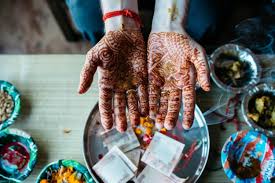What culture are tikis from? The history of tiki culture dates back to ancient Polynesia. Such carvings were first discovered in Polynesia, and tiki carvings are said to represent a Polynesian God. They’re an integral part of South Pacific mythology, culture and history.
What does a tiki symbolize? In Polynesian mythology, tiki often represents the first human being on Earth created by the atua (deity) Tane, who, together with Hine-ahu-one, is considered humankind’s progenitors. In areas of Polynesia, carved tiki figures were often thought to be a repository for a certain god’s mana (prestige).
What is the history behind tiki? Originating from the Marquesas Islands, Tikis are also present in most islands of the polynesian triangle. The most famous are probably the “Moai”, the monumental statues of Easter Island. Half-man, half-god, the Tiki symbolizes a mythical character who created human beings. Polynesians used to worship and fear it.
Where did tiki bars originate? The beginning of tiki bars started in the 50’s when Ernest Gantt (better known as Donn Beach) opened the first tiki restaurant in California. He combined his comprehensive knowledge of the far-away tropical lands and his imbibing skills in an over-the-top tropical bar.
What culture are tikis from? – Additional Questions
Are Tikis Hawaiian?
Tiki are also called Ki’i in Hawaiian. The word ‘Tiki’ originates from New Zealand’s Maori tradition. Tikis can be traced back to ancient Polynesian culture, which explains their influence on the Hawaiian mainland. According to Maori customs and traditions, Tiki represents the first human being on earth.
When did tiki culture start?
American tiki culture has origins dating back to the 19th century.
When were tiki bars invented?
One of the earliest and perhaps the first of what is now known as a tiki bar was named “Don the Beachcomber,” created in Hollywood in 1933 by Ernest Gantt (who later legally changed his name to “Donn Beach”).
Who discovered tiki?
Ernest Raymond Beaumont Gantt, known better as Don the Beachcomber, is often called the founding father of tiki.
What is a Hawaiian tiki god?
In the Maori tribe, which began in New Zealand and made its way to other Polynesian and Hawaiian islands, Tiki culture begins with Tiki, the first man. Believed to have been the creation of the god Kane, Tiki is often worshipped as a god because he was the first and only human being on Earth.
What do tiki sculptures mean?
Tiki statues were carved to represent the image of a certain god and as an embodiment of that specific god’s mana, or power. With well-formed tikis, perhaps the people could attain protection from harm, strengthen their power in times of war and be blessed with successful crops.
What does a smiling Tiki mean?
The Meaning of the Tiki Expressions
Expression. Meaning. Smile. Love and Happiness. Eyes Down.
What is the meaning of a Tiki mask?
What are Tiki Masks? Tiki masks are hand-carved wooden masks that, in their original intent, were used to stand in for deities, protect their users from evil spirits or even increase the mask wearers’ fertility and luck. They served many purposes, both in the privacy of people’s homes and in everyday life.
What are Tiki faces called?
Hei-tiki, Māori neck pendants, often called tiki. Moai, a monolithic human figure on Easter Island, sometimes erroneously called tiki. Tiki culture, a 20th-century decorative style used in Polynesian-themed restaurants. Taotao, similar carvings of ancestral and nature spirits in the Philippine islands.
What do Tiki eyes mean?
This stems from the belief that tiki could smell dangers even before seeing them. These traits are so representative of the tiki that they are often used independently. An eye, an ear, the mouth, a hand. They sometimes appear in traditional designs to represent a deity, a demigod or a human with special habilities.
What does Tiki mean in Polynesian?
Tiki definition
(person, proper) In Polynesian mythology, the first man, or the god who creates him.
Who are the tiki gods?
There are four major gods, KU, KANE, LONO and KANALOA. Demi-gods included Pele and many others. The complexities of the relationships between all Hawaiian gods are explained in many legends. Each Hawaiian family had its own aumakua (personal god) which protected them.
What does a Polynesian shark tattoo mean?
Shark Tattoo Meaning
In particular, traditional shark tattoos have been representing protection, courage, guidance, etc. Shark tattoos represented protection against enemies in Polynesian cultures. They also represented protection for seamen and the dangers of the deep waters.
What do octopus tattoos mean?
An octopus tattoo can symbolize magical knowledge, and also on-the-spot thinking and multitasking. This tattoo idea is a great symbol for overcoming your fears. One of the coolest octopus tattoo meanings is the ability to tap into the danger and power of this mighty creature of the sea.
What does a tooth tattoo mean?
In addition to nourishing our body, the tooth tattoo can represent a nourishment of the soul. In the ways we chew and nourish our body with food, intelligence and wisdom is the food for the soul, so a tooth tattoo can also be a reminder to keep feeding the soul with goodness and wisdom.
What does a manta ray tattoo mean?
The indigenous people of Polynesia thought the manta ray was a symbol of wisdom and graceful strength. They saw the manta ray as a spirit guardian so to have the tribal manta ray tattoo was a way to protect your spirit and help you conjure these traits.
What is the meaning of a jellyfish tattoo?
Many body art enthusiasts view the jellyfish tattoo as being a symbol of strength, protection, and defending one’s family and friends. While the jellyfish appears calm and serene, its tentacles can deliver deadly stings, making it one of the most stealthy and dangerous creatures when threatened.
